
Russia-Ukraine Conflict: What does It Mean for India? And What Role Should India Play?
Posted On Tuesday, February 15, 2022 by Arpit Chaturvedi (Research Assistant: Richa Singh) under International Trade and Economics
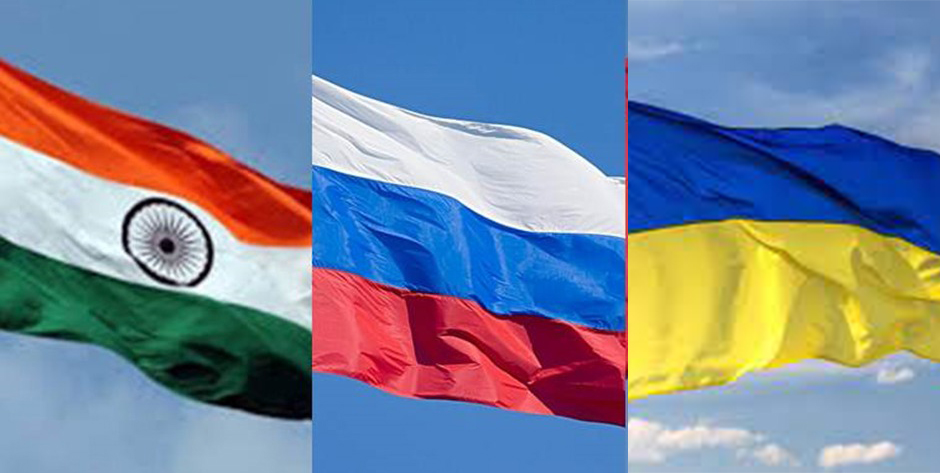
Russia-Ukraine Conflict: What does It Mean for India? And What Role Should India Play?
What does a Russian attack on Ukraine mean for India? At the outset, a lay observer may be tempted to say – not very much. Geographically, culturally, and economically, Russia’s invasion of Ukraine would mean little to India. In an interconnected world, things simply do not work that way.
Firstly, the imminent conflict has already shot up the oil prices “to their highest in more than seven years” in the middle of February 2022 and have come closer to the $100-per-barrel mark. It is worth mentioning here that India opened its markets to the world after the 1991 balance of Payments (BoP) crisis which was triggered by the rise in oil prices as a result of the Iraq-Kuwait War in August 1990. The price of crude oil rose from $ 15 per barrel in July 1990 to $ 35 per barrel in October 1990. For most countries, this was a temporary shock, but for India, it had major repercussions because Iraq and Kuwait were the major sources of India’s oil imports and the war made it necessary to buy oil from the spot market. Short-term purchases from the spot market had to be followed up by new long-term contracts at higher prices. 1 As a result, the oil import bill increased by about 60% in 1990 – 91 and remained 40% above the 1989 – 90 level the next year India was already in a current account deficit of 3.5% which was due to unsustainable borrowing and high expenditure.2 With the rise in oil prices, 3 the situation came to a head and India found itself in a position where it could not even finance the interest it had to pay on its international borrowings. All of this led to the Liberalization, Privatization, and Globalization policy promulgated by Prime Minister Narasimha Rao. Indeed, India is a much stronger economy now than it was in 1990, its direct dependence on oil and gas from Russia is low and the Russia-Ukraine Crisis has given enough of a preparation time for the Indian government.
Yet, in an ever more interconnected world, a crisis in one part of the globe could spiral into many other disruptions which may pose unforeseen strategic challenges for any country. Unknown-unknowns aside, the global rise in oil and gas prices still makes operating businesses and the economy more expensive. Here the GCC nations and the USA stand to benefit from their ability to supply more of their oil and gas to the world.
Secondly, India has certain opportunities as well. Russia and Ukraine combined, produce nearly 30% of the world’s wheat. Wartime requires the countries to maintain larger reserves of food and also results in the disruption of supply chains, thereby increasing the demand for Indian wheat across the world. India could fill in the market void and gain a greater share of wheat exports globally.
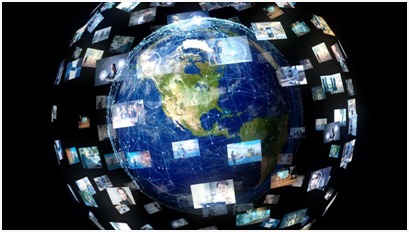
Thirdly, India has more than “20,000 nationals in Ukraine, mainly medical students, and business professionals in the field of pharma, IT, and engineering”. Many of them are stranded in Ukraine which becomes a humanitarian and political problem for the government. While India has conducted evacuations from war-torn areas in the past, such as Yemen, South Sudan, and more recently Afghanistan, There are no indications that it will engage in a similar operation in Ukraine. The United Kingdom government along with other governments such as that of the United States have asked their citizens for immediate evacuations and the prior has made it clear in an official communique that those stranded should not expect an evacuation operation from the British Government. However, the Indian government has only records of the Indian citizens in Ukraine and has not made a formal call for evacuations, partly because such an appeal could offend Russia. Geopolitical balancing is critical for New Delhi and taking action that may seem unfavourable to Russia, especially when another round of the Quadrilateral Security Dialogue or Quad has taken place would become an irritant to Russia, which remains one of India’s largest weapons suppliers, a favourable player to reach out to in the UN Security Council, and a potential back channel for negotiations with China, if not a mediator in future.
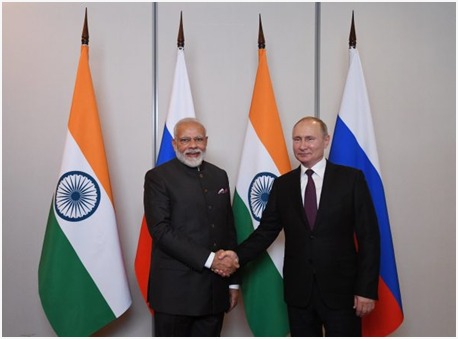
Russia and China have already found successes in managing collective security as part of the Shanghai Five, now the Shanghai Cooperation Organization (SCO). Even though India is now a part of the SCO it is still not in its inner circles – the original Shanghai Five – which has been able to cooperate effectively on border disputes and counter-terrorism mechanisms in Central Asia and along the China-Russia borders. While this conflict would move Russia and China closer, as has been argued by prominent analysts, it leaves India out as “the other” which has been more openly active with the Quadrilateral Security Dialogue. The difference here is that India is a founding member of the Quad but a late entrant in SCO, which keeps it in the in-group, at least perceptually, of the former and in the out-group of the latter. Without multilateral security forums that overlap bilateral ties and call for various opportunities for interactions and cooperation, the opportunities to smooth over differences are relatively fewer between India and Russia unless India could enter the SCO in-group as well, which seems unlikely.
Amidst these considerations, there are many opinions that are floating around in the Indian media and think-tank circles. One calls for outright support for Russia and sounds like a psyops effort which included inundating WhatsApp groups of international relations professionals with messages echoing a narrative represented in the following example:
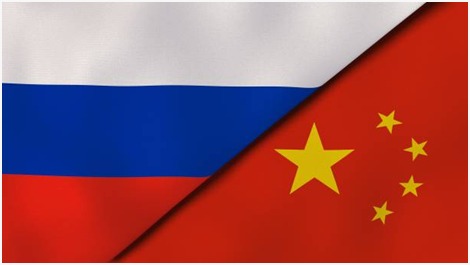
“In Ukraine, Russia is Not the aggressor
It appears aggressive as a contrast to the European nations because it's standing up for its most basic rights- those of self-determination& sovereignty
Both of which Europe has long abandoned in favour of US hegemony
The US has a permanent military presence in Germany, Italy and others from the time of WW2 (Second World War)
Self-respecting nations don't allow a permanent foreign military presence on their soil with no end in sight
The US continues to spy on its own allies
Russia is standing up for its most basic rights. Europe doesn't anymore and has capitulated- which makes the US the common aggressor. Not Russia.
One need (to) look back only to the Cuban missile crisis to see how well the Americans take to foreign missiles next to their borders
The same as is anticipated if Ukraine joins NATO”
Such swarms of messages indeed seem like what is called “Black Propaganda” which while articulating someone else’s ideas, speaks in the voice of “I-think-that-we-ought to do this or that” as opposed to White Propaganda, which speaks in the tone of “I-say-to-you…” and “makes no pretense that it is other than its own actual source.”4 Not that counternarratives are of much use, but the flaw with the arguments as shown in the swarms of messages, is also that they fail to highlight similar transgressions of treaties, maintaining of military forces on foreign lands (Armenia, Belarus, Georgia, Kazakhstan, Kyrgyzstan, Moldova, Syria, Tajikistan) and triggering and mismanagement of crises such as the Holodomor famine, on part of Russia.
Myth-busting apart, whether, the United States, Russia, or any other major power, can be expected to influence the world order by various means – military, economic, ideological, cultural, technological, and others. That is realism in international politics and it isn’t going away. Countries could endlessly call foul on each other. This should not bother anyone unless they indulge in reprehensible acts such as terrorism, human rights violations, or any other broadly illegitimate acts which are defined as per the zeitgeist.
Some also argue that India could act as a mediator in this conflict and this argument cannot be entertained by serious strategic thinkers given India’s position in the world order currently. If one was to follow Kautilya’s advice, then it is would be obvious that a mediator in this conflict could be a player (a country or an entity) which exceeds the capabilities of both the adversaries and preferable exceeds the capabilities of both the adversaries put together. Such an entity simply does not exist in the current global order with Russia on one side, and NATO on the other. From a constructivist perspective, even smaller players could play the mediator if they are trusted by all the parties involved and has no vested interests in the outcome. Even here, no nation really makes the mark.
Further, there are those who advocate neutrality for India: “On Kyiv, sit on the fence”. Mainly owing to India’s history of non-alignment or neutrality from Nehru to Modi, its personality and self-image as an independent player that does not accept a client status to the USA or any other country, it’s right to be independent, and finally its own geopolitical interests. Such arguments seem to have a narrow definition of centrism in international political economy. Being a centrist does not mean sticking to the median opinion along the spectrum. Centrism implies strategic autonomy in under changing contexts and scenarios, which in turn means that a centrist could play one any single point of the spectrum without the necessary obligation to stick to that position other than for its own reasons of interests and morality (moral interests are interests too). Therefore, there is no obligation for India, if it is a centrist in international politics, to stick to the centre of the spectrum and remain non-aligned just as it has no necessity to ally with another nation on all agendas. As a sovereign nation, India can, for the sake of its interests, both material and moral, cooperate with one party on some accounts, oppose the same on others, and agree to disagree in yet other issue areas. This has, in fact, been the position of India from Nehru to Modi.
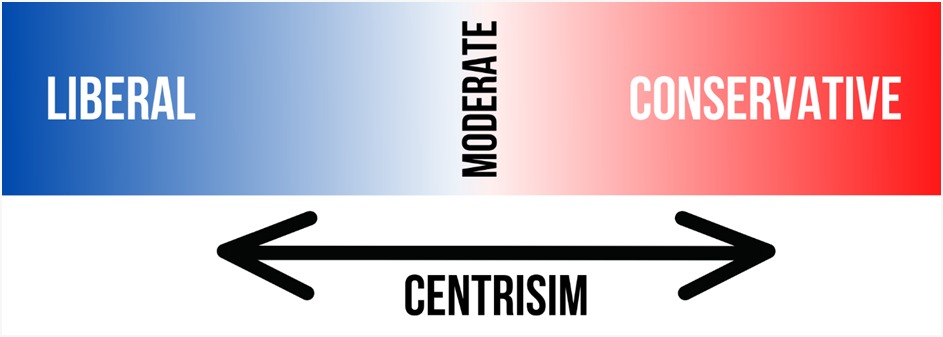
Then, there are those who argue that India should completely abandon its ties with Russia and support NATO’s cause. This also remains unplausible because in game-theoretical terms, past games, or past actions taken by a player in the infinitely iterative game of geopolitics matter. Russia’s support to India in its critical times such as during the Indo-Pak war in 1971 which led to Bangladesh’s liberation (when Soviet Navy dispatched cruisers and destroyers and a submarine armed with nuclear missiles from Vladivostok), and at other times has a strong imprint in the Indian strategic discourse. Even if one is to strip apart the moral obligation of reciprocity, rationality also points towards playing reciprocally cooperative games with the players who have been cooperative.
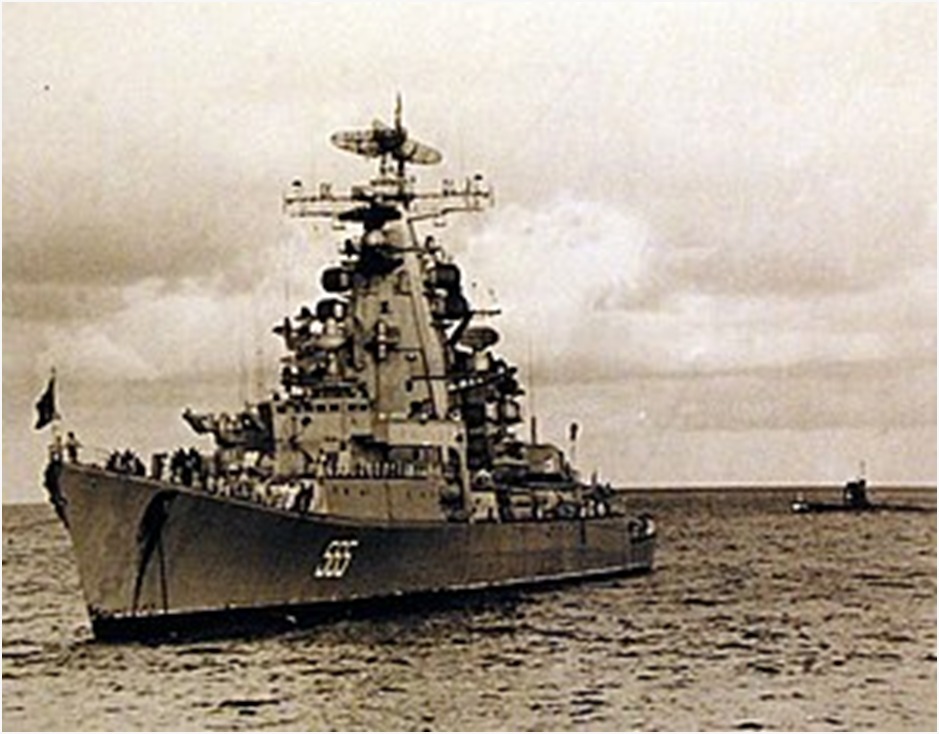 (Vladivostok in 1971, Wikimedia Commons)
(Vladivostok in 1971, Wikimedia Commons)
This, therefore is no time for India to “sit on the fence”. It is its time to first safeguards its own interests, especially its citizens, also its economy by offsetting and creating buffers for any losses due to higher oil and gas prices while capitalizing on exporting products and services that the world may need while other supply chains are engaged elsewhere or plain disrupted. Next, it is India’s time to actively support Ukraine’s right to remain sovereign even if that means that it appears to side with NATO. This also gives India a moral grounding to counter Pakistan’s encroachments over Kashmir and moral high ground has strategic value in international relations. Finally, it is India’s time to prepare for a role that it could aspire to play in the future where it is materially capable enough and is also trusted as a mediator that does not sit on the fence but can go around it to get the adversaries to find common ground – but to reach that point India will have to have greater stakes, capabilities, and clout on the international stage.
1. Virmani Arvind (2001) – “India’s 1990-91 Crisis : Reforms, Myths and Paradoxes” - Planning Commission – Working Paper, No. 4 / 2001, PC – December 2001, p. 29
2. Ibid.
3. Although there were other contributing factors to the BoP crisis, but the rise in oil prices is considered one of the key factors that triggered the crisis. For other contributing factors, read:BoP crisis
4. Linebarger, Paul M. A. 1951. “PSYCHOLOGICAL WARFARE.” Naval War College Information Service for Officers 3 (7): 19–47.

Arpit Chaturvedi
Arpit Chaturvedi is the Chief Executive Officer of Global Policy Insights, a Centrist Thinktank based out of India, USA, and the United Kingdom. He is an advisor at the Kyiv School of Diplomatic Arts (Ukraine) and a Co-Chair of the GPI Quad Forum, a public Diplomacy Forum for the Quadrilateral Security Dialogue Countries (India, USA, Japan, and Australia). Arpit holds an MPA degree from Cornell University, an MBA degree from Symbiosis International University, and a bachelor with honours in History from the University of Delhi.
